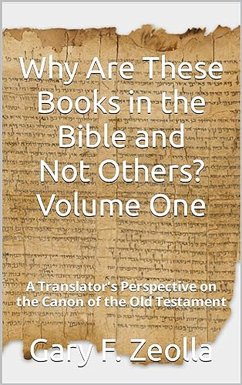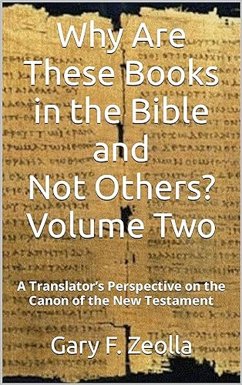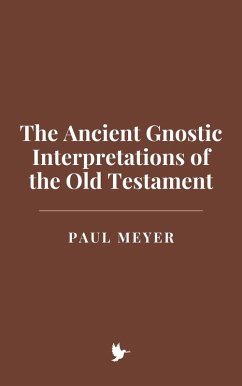
Why Are These Books in the Bible and Not Others? - Volume Three The Apostolic Fathers and the New Testament Apocrypha (eBook, ePUB)

PAYBACK Punkte
0 °P sammeln!
Christians claim the Bible is the Word of God, that it is absolutely reliable in all that it teaches. But to put such confidence in the Bible requires that we have the correct books in the Bible. But do we? This subject is very important and complicated, so complicated it took three volumes to fully cover it. Volume One studied the books included in the Old Testament (OT) and considered other books that could have been included but were not. Volume Two covered the books included in the New Testament (NT). This third and final volume will consider other writings which are not in the NT. They ar...
Christians claim the Bible is the Word of God, that it is absolutely reliable in all that it teaches. But to put such confidence in the Bible requires that we have the correct books in the Bible. But do we? This subject is very important and complicated, so complicated it took three volumes to fully cover it. Volume One studied the books included in the Old Testament (OT) and considered other books that could have been included but were not. Volume Two covered the books included in the New Testament (NT). This third and final volume will consider other writings which are not in the NT. They are of three types: The first type is the writings of the Apostolic Fathers. These are Church leaders and writers of the late first to mid-second centuries. Most were direct disciples of the apostles, and some of their writings were seriously considered for inclusion in the NT. It will be explained why this was so and why these writings were eventually rejected. The second and third types are "apocryphal" books. This term originally meant "hidden" but now means "extra-canonical," meaning the books are not considered to be inspired by God and thus are outside of the canon (list of authoritative books) of Scripture. These books are divided into two types: ones that are mostly orthodox in their theology and ones that are heretical or Gnostic. Among these apocryphal books are some that have received much publicity of late. The media has been abuzz in recent years about books like the Gospel of Thomas, the Gospel of Judas, and the Gospel of Jesus' Wife. It is said these books present a radical new viewpoint of Christianity and are more reliable than the NT books. In addition, the conception many people have of early Christian history often comes from apocryphal books and not from NT books. For instance, at Christmastime, the manner in which nativity scenes are displayed comes more from apocryphal "infancy gospels" than from the NT Gospels. Therefore, many people today will find a discussion of these books to be of interest.
Dieser Download kann aus rechtlichen Gründen nur mit Rechnungsadresse in A, B, BG, CY, CZ, D, DK, EW, E, FIN, F, GR, HR, H, IRL, I, LT, L, LR, M, NL, PL, P, R, S, SLO, SK ausgeliefert werden.













